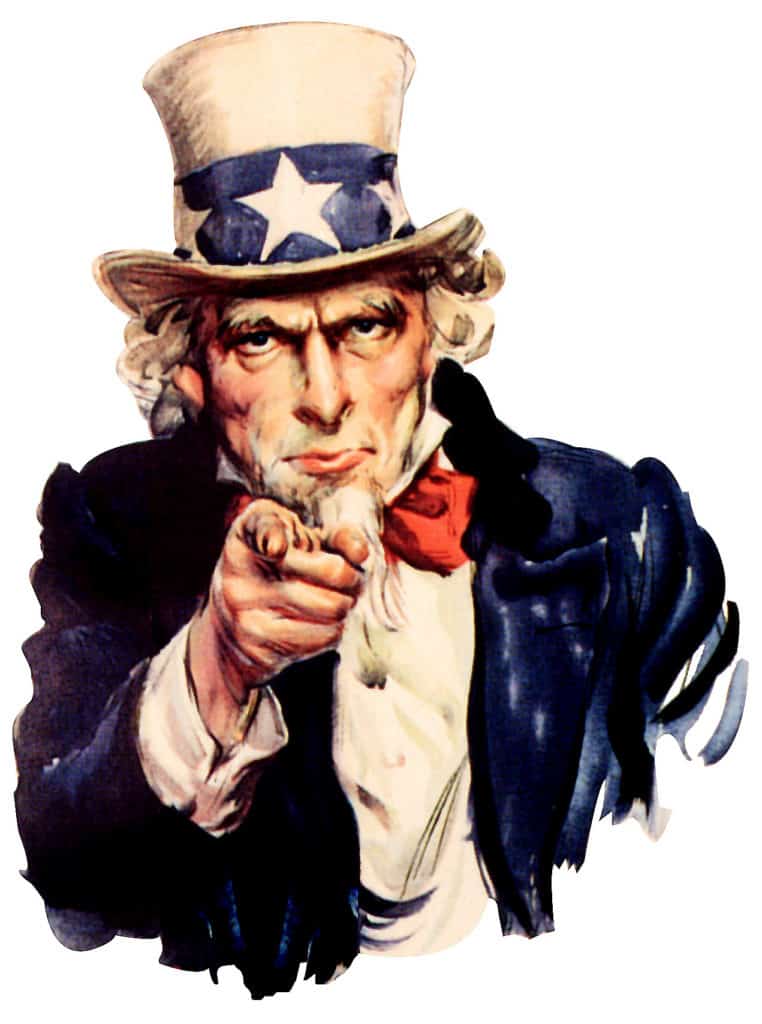
ADVERTISEMENT - CONTINUE READING BELOW
Uncle Sam
Before the War of 1812 the most commonly used reference to Americans in general by the British was Brother Jonathan, a personification which in the United States referred mainly to New Englanders. It was nearly always derisive. Uncle Sam didn’t exist at the time, but a New Englander who relocated to New York’s Hudson Valley became the inspiration for him. His name was Sam Wilson. In his early twenties Sam, in the company of his elder brother Ebenezer, walked from Mason, New Hampshire to Troy, New York, a distance of well over 120 miles. When they arrived in 1789 Troy was still a pioneer village.
In the late 18th century most of the bricks used in the New York and New England colonies were imported from Europe, with the Dutch being a favored supplier. Sam and his brother began using the clay on property they purchased near the Hudson to manufacture their own. The bricks produced were of high quality, equal to the best imports, and as Troy grew many of its buildings and factories were built with the Wilson’s bricks. Despite the success of the brick business, which also shipped down the river to New York City, the brothers looked for other opportunities.
In 1793 the brothers entered the meatpacking industry, building a slaughterhouse connected with a dock to the Hudson River. The meatpacking industry quickly prospered as well, with beef and pork being shipped down the Hudson. By the time the War of 1812 began the brothers were an established, well known and highly regarded firm. They learned of an Army contract for beef and pork to feed the US troops of New York and New Jersey being offered by Elbert Anderson, who had secured the contract from the Army. The brothers contracted for one year, to deliver 3,000 barrels of beef and an additional 2,000 barrels of pork.
ADVERTISEMENT - CONTINUE READING BELOW
Under the contract every barrel had to be labeled by the supplier, to assign responsibility in the event of bad quality. The barrels left the Wilson’s slaughterhouse marked EA-US, meaning Elbert Anderson – United States. Much of Wilson’s shipment went to troops encamped in the region, many of the troops were from Troy, and they knew of the Wilson’s beef. By this time Sam Wilson was known in Troy by the nickname Uncle Sam. The troops began the habit of saying that the beef and pork they were fed (which was all pickled in brine) came from Uncle Sam.
In 1961 Congress passed a resolution in both Houses which officially recognized Sam Wilson as the “…Progenitor of America’s National symbol of Uncle Sam.” Uncle Sam began to share the clothing of Brother Jonathan in depictions of him during the Civil War. Uncle Sam is often mistaken as representing the entire nation, a role occupied by the female Columbia up until about World War II. Uncle Sam was then a personification of the United States Government, in particular its actions, both foreign and domestic. While some debate the authenticity of the Uncle Sam story, citing earlier references to the term Uncle Sam, they were not in relation to governmental or national roles.

